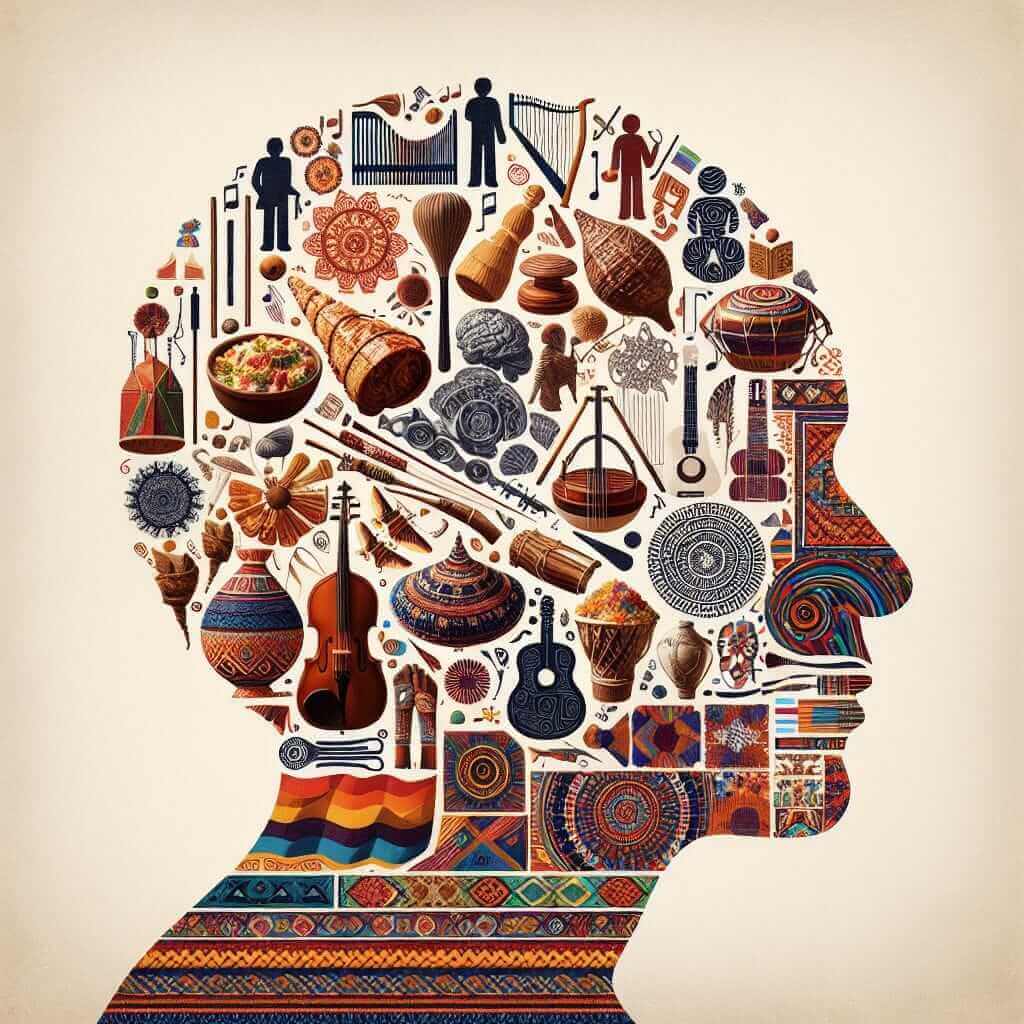As an IELTS instructor with over 20 years of experience, I often find students grappling with the complex relationship between culture and identity. This topic frequently appears in IELTS, requiring a nuanced understanding to excel. This guide will delve into the meaning of “the role of culture in shaping identity”, equip you with relevant vocabulary, provide examples, and show you how to apply this knowledge effectively in your IELTS exam.
Nội dung bài viết
Understanding the Concept: Culture and Identity
Before we jump into examples, let’s first define the key terms:
- Culture: Refers to the shared beliefs, customs, arts, and institutions of a particular society, group, place, or time. Think of it as the collective personality of a group of people.
- Identity: Encompasses the qualities, beliefs, personality, looks and/or expressions that make a person or group. It’s how we define ourselves and our place in the world.
The statement “the role of culture in shaping identity” implies that the cultural environment we grow up in significantly influences our values, beliefs, behaviors, and ultimately, our sense of self.

Illustrative Examples
Here are some concrete examples to illustrate how culture shapes identity:
- Language: The language(s) we speak from childhood influence our thought processes and how we perceive the world. For instance, cultures with different terms for specific emotions may experience those emotions differently.
- Food: Traditional cuisine is often deeply intertwined with cultural identity. Think about how a Sunday roast evokes a sense of Britishness or how sharing food during Ramadan strengthens community ties in Muslim cultures.
- Clothing: Traditional clothing, like the Japanese kimono or the Scottish kilt, often act as visual markers of cultural identity, connecting individuals to their heritage and signifying belonging.
- Values: Cultures instill different values in their members. For instance, collectivist cultures emphasize the importance of family and community over individual needs, while individualistic cultures prioritize personal goals and independence.
- Religion: Religious practices and beliefs often play a significant role in shaping an individual’s moral compass, worldview, and daily practices, influencing their overall identity.
Applying the Concept to the IELTS Exam
This topic can appear in various sections of the IELTS exam. Let’s examine how to approach it effectively:
IELTS Writing Task 2:
You might encounter an essay question like this:
“Some people believe that globalization is leading to a homogenization of cultures and a loss of individual identity. To what extent do you agree or disagree?”
In your essay, you can argue how globalization, while fostering cultural exchange, can also lead to the erosion of unique cultural practices and traditions, impacting individual and group identity. You can support your arguments with examples like the global dominance of certain fashion trends or the standardization of architectural styles.
IELTS Speaking Part 3:
You could be asked a question like this:
“How does someone’s cultural background influence their personal values and beliefs?”
Here, you can discuss how factors like upbringing, religious practices, societal norms, and family traditions within a particular culture shape an individual’s moral compass, their understanding of right and wrong, and their overall outlook on life.
Common Mistakes to Avoid
- Overgeneralization: Avoid making sweeping statements about entire cultures. Remember that cultures are diverse, and individuals within the same culture can have varying experiences and identities.
- Clichés: Try to avoid using overused phrases or stereotypes. Instead, provide specific examples and personal anecdotes to illustrate your points effectively.
- Lack of Cohesion and Coherence: Ensure your ideas flow logically and are connected using appropriate linking words and transition phrases.
Practice Makes Perfect
Here are some ways to practice applying your knowledge:
- Brainstorming: Think about your own cultural background and how it has shaped your identity. Jot down specific examples and consider how these might resonate with a global audience.
- Reading: Explore articles and opinion pieces on cultural identity, globalization, and their impacts. Pay attention to how writers structure their arguments and use evidence.
- Speaking: Engage in discussions on cultural topics with friends, classmates, or language partners. Practice expressing your views clearly and using relevant vocabulary.
Conclusion
Understanding the intricate relationship between culture and identity is crucial for success in the IELTS exam. By grasping the concept, equipping yourself with relevant vocabulary and examples, and practicing your application of this knowledge, you can confidently approach any IELTS question on this theme. Remember, personalizing your responses with relevant examples and demonstrating your understanding of cultural nuances will make your answers stand out. Good luck!
We encourage you to share your thoughts and experiences in the comments below. For further exploration of related topics, you might find these articles insightful: